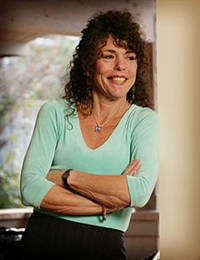EP13 Workshop 33 – Affairs: Helping Couples to Heal from Infidelity – Michele Weiner-Davis, MSW, LCSW
- Average Rating:
- Not yet rated
- Topic Areas:
- Couples Therapy | Infidelity | Workshops | Affairs | Psychotherapy
- Categories:
- Evolution of Psychotherapy | Evolution of Psychotherapy 2013 | Pioneers in Couples and Family Therapy
- Faculty:
- Michele Weiner-Davis, LCSW
- Duration:
- 1 Hour 53 Minutes
- Format:
- Audio Only
- Original Program Date:
- Dec 14, 2013
- License:
- Never Expires.
Description
Description: This session offers a clear, compassionate path for helping couples recover from infidelity. Weiner-Davis shares tools for restoring trust, managing anger, addressing partial disclosures, and reestablishing connection. Her approach supports both partners with practical strategies and a strong belief in the possibility of healing—even when things feel irreparable.
Syllabus Description: If you work with couples, you’re no stranger to infidelity. And because healing from infidelity is challenging, it behooves us to have a clear roadmap of the territory. We’ll go over an array of post-affair issues, including ways to deal with intense emotions, whether to discuss the details of the betrayal, how to begin rebuilding trust in the aftermath of the discovery; whether to have clinical ultimatums about ending affairs, how to handle setbacks; and how to deal with residual feelings for the affair partner. We’ll explore a step-by-step treatment plan and discuss how to tailor it to each couple’s unique needs.
Educational Objectives:
- Review what both the unfaithful and betrayed spouse must do to heal from infidelity.
- Discuss & practice what to do when disclosure is made during an individual session.
- Name and discuss methods for overcoming the most common impasses in helping couples heal from infidelity.
*Sessions may be edited for content and to preserve confidentiality*
Credits
Handouts
| Timestamped Transcript (1.3 MB) | 34 Pages | Available after Purchase |
| Ericksonian Learning Snapshot (246.8 KB) | 2 Pages | Available after Purchase |
Faculty

Michele Weiner-Davis, LCSW Related Seminars and Products
Michele Weiner-Davis, LCSW is the Founder of The Divorce Busting Center in Boulder, Colorado. She is a popular TEDx speaker and the author of eight books including, Healing From Infidelity, and the bestselling Divorce Busting and The Sex-Starved Marriage. She is the recipient of several prestigious awards including the Outstanding Contribution to Marriage and Family Therapy Award from AAMFT.


